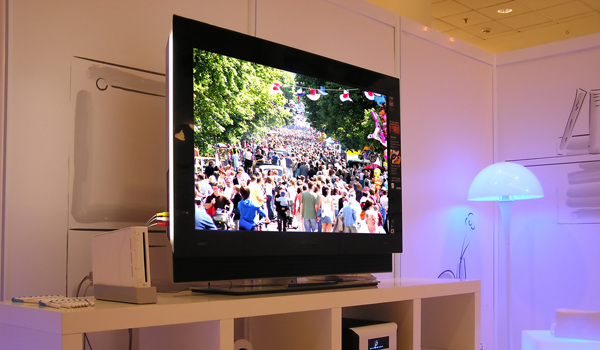Too Much TV Linked to Premature Death

Adults who watch a lot of TV may be at an increased risk of dying at a relatively young age, a new study suggests.
The study involved more than 13,200 adults in Spain who were all college graduates, and were around 37 years old at the study's start. Participants were followed for about eight years, over which there were 97 deaths.
Those who watched three or more hours of TV a day were twice as likely to die over the study period, compared with those whose watched TV for one hour or less daily, the study found.
In addition, the researchers found that participants' total time spent sitting — including time spent watching TV, using a computer or driving — was also linked to an increased risk of death during the study period. [Don't Sit Tight: 6 Ways to Make a Deadly Activity Healthier]
The findings held even after the researchers took into account factors that could affect a person's risk of death, including age, sex, smoking habits, total daily calorie intake, snacking habits, body mass index, physical activity level and whether participants adhered to a Mediterranean diet, which has been linked to a longer life span.
The results agree with several previous studies that have linked watching TV with an increased risk of death. A 2010 study of Australian adults found that each additional hour of watching TV was linked with an 11 percent increased risk of death over a 6-year period. But the new study is one of the first to examine the link in younger adults.
"Our findings suggest that not only the promotion of physical activity but also the reduction in sedentary activities (especially television viewing) is a priority for the prevention of premature mortality," the researchers, from the University of Navarra in Pamplona, Spain, wrote in a paper published today (June 25) in the Journal of the American Heart Association.
Sign up for the Live Science daily newsletter now
Get the world’s most fascinating discoveries delivered straight to your inbox.
Interestingly, when the researchers considered computer use and driving separately, neither of these activities were linked with an increased risk of death, but future studies are needed to confirm these findings. The researchers noted that they assessed people's computer use at the study's start in 1999, before prolonged use was common. Driving and computer use may also require slightly more energy expenditure and muscle activity than watching TV, the researchers said.
The study found an association, and cannot prove that watching TV causes people to die at an early age — it's possible that other factors not accounted for in the study may explain the link. More research is also needed to examine whether decreasing time spent watching TV might reduce a person's risk of death, the researchers said.
Follow Rachael Rettner @RachaelRettner. Follow Live Science @livescience, Facebook & Google+. Original article on Live Science.

Rachael is a Live Science contributor, and was a former channel editor and senior writer for Live Science between 2010 and 2022. She has a master's degree in journalism from New York University's Science, Health and Environmental Reporting Program. She also holds a B.S. in molecular biology and an M.S. in biology from the University of California, San Diego. Her work has appeared in Scienceline, The Washington Post and Scientific American.









